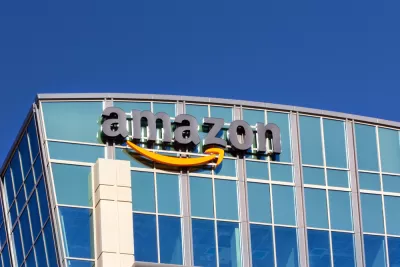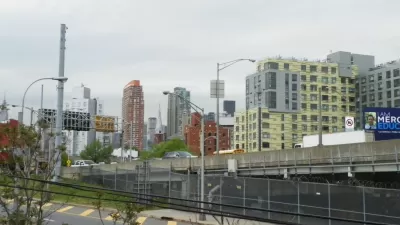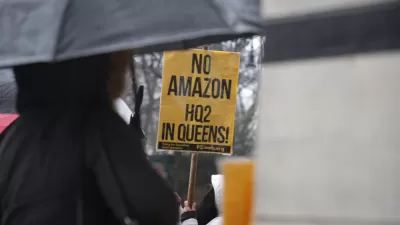With a second headquarters, Amazon is poised to expand its preference for walkable places into a new city. However, maybe the company should take the high road and not beg for subsidies.

Amazon dropped a bombshell earlier last week when it announced that it's going to expand beyond Seattle, building a brand new second headquarters in another city. Based on the qualifications in Amazon's RFP, like on-site access to transit and connectivity options like sidewalks and bike lanes to “foster connectivity between buildings/facilities,” this is another example of how companies are increasingly seeking out vibrant, walkable, connected urban places as they try to attract and retain talent.
Here, Michael Rodriguez, Director of Research at Smart Growth America, discusses why many corporations are moving to vibrant urban locations, and why corporations need those environments to compete. Rodriguez argues that the best model of economic development forgoes tax breaks and subsidies in favor of supportive policy and infrastructure that enables companies to attract talent.
"Instead of subsidies, Amazon should insist on supportive zoning, transit, bicycle and pedestrian infrastructure, in keeping with its reputation as Fortune's 2nd Most Admired Company," Rodriguez writes.
FULL STORY: Amazon's Hunt for a Second HQ is Likely to End in a Vibrant, Urban, Walkable Place

Maui's Vacation Rental Debate Turns Ugly
Verbal attacks, misinformation campaigns and fistfights plague a high-stakes debate to convert thousands of vacation rentals into long-term housing.

Planetizen Federal Action Tracker
A weekly monitor of how Trump’s orders and actions are impacting planners and planning in America.

In Urban Planning, AI Prompting Could be the New Design Thinking
Creativity has long been key to great urban design. What if we see AI as our new creative partner?

King County Supportive Housing Program Offers Hope for Unhoused Residents
The county is taking a ‘Housing First’ approach that prioritizes getting people into housing, then offering wraparound supportive services.

Researchers Use AI to Get Clearer Picture of US Housing
Analysts are using artificial intelligence to supercharge their research by allowing them to comb through data faster. Though these AI tools can be error prone, they save time and housing researchers are optimistic about the future.

Making Shared Micromobility More Inclusive
Cities and shared mobility system operators can do more to include people with disabilities in planning and operations, per a new report.
Urban Design for Planners 1: Software Tools
This six-course series explores essential urban design concepts using open source software and equips planners with the tools they need to participate fully in the urban design process.
Planning for Universal Design
Learn the tools for implementing Universal Design in planning regulations.
planning NEXT
Appalachian Highlands Housing Partners
Mpact (founded as Rail~Volution)
City of Camden Redevelopment Agency
City of Astoria
City of Portland
City of Laramie




























